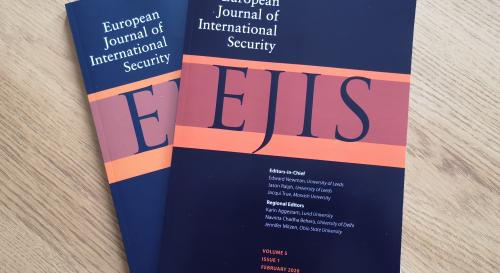
Breadcrumbs navigation
The heart of bureaucratic power: explaining international bureaucracies’ expert authority
In her new article for BISA journal Review of International Studies, Andrea Liese presents results from original research to measure whether international bureaucracies’ expert authority is indeed recognised and deferred to. Since the results showed wide variance, Andrea, and her co-authors - Jana Herold Hauke Feil and Per-Olof Busch, - also tested well-established assumptions on the sources of de facto expert authority.
BISA Director, Juliet Dryden, spoke to Andrea to discuss out the key findings.
BISA members receive access to RIS (and our other journal European Journal of International Security) as a benefit of membership. To gain access log in to your BISA account and scroll down to the 'Membership benefits' section. If you're not yet a member join today.
Full article abstract
Expert authority is regarded as the heart of international bureaucracies’ power. To measure whether international bureaucracies’ expert authority is indeed recognised and deferred to, we draw on novel data from a survey of a key audience: officials in the policy units of national ministries in 121 countries. Respondents were asked to what extent they recognised the expert authority of nine international bureaucracies in various thematic areas of agricultural and financial policy. The results show wide variance. To explain this variation, we test well-established assumptions on the sources of de facto expert authority. Specifically, we look at ministry officials’ perceptions of these sources and, thus, focus on a less-studied aspect of the authority relationship. We examine the role of international bureaucracies’ perceived impartiality, objectivity, global impact, and the role of knowledge asymmetries. Contrary to common assumptions, we find that de facto expert authority does not rest on impartiality perceptions, and that perceived objectivity plays the smallest role of all factors considered. We find some indications that knowledge asymmetries are associated with more expert authority. Still, and robust to various alternative specifications, the perception that international bureaucracies are effectively addressing global challenges is the most important factor.
Photo by Rita Morais on Unsplash


